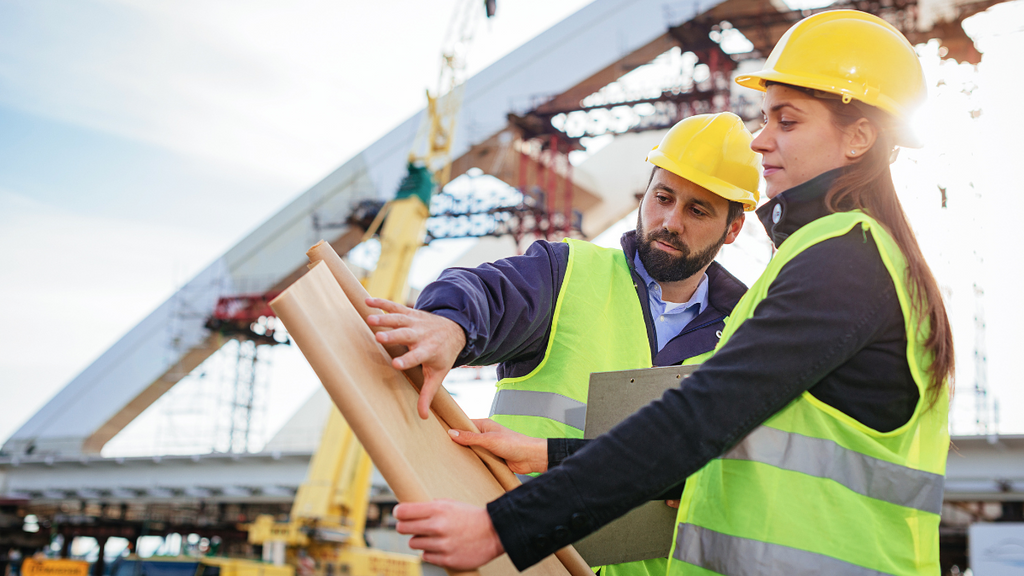The Greatest Guide To Geotheta
Table of ContentsGetting My Geotheta To Work7 Easy Facts About Geotheta DescribedThe 25-Second Trick For GeothetaGeotheta - An OverviewThe Only Guide to Geotheta

They perform site examinations, collect examples, perform research laboratory tests, and examine data to assess the suitability of the ground for building jobs - Geo Tech Engineer. Based on their findings, geotechnical engineers supply referrals for structure design, slope stability, keeping frameworks, and mitigation of geotechnical threats. They work together with various other experts, such as designers, architectural engineers, and building teams, to make certain that geotechnical considerations are incorporated right into the general project design and execution
By analyzing the actions and residential or commercial properties of dirt and rock, they can determine prospective geotechnical dangers such as landslides, dirt settlement, or slope instability. Their expertise assists stop failures or crashes that might threaten lives and residential property. Below are some thorough duties and responsibilities of a geotechnical engineer: Website Examination: Geotechnical engineers conduct site investigations to collect information on subsurface problems.
They analyze the information to recognize the residential or commercial properties and actions of the soil and rock, including their stamina, leaks in the structure, compaction qualities, and groundwater conditions. Geotechnical Evaluation and Layout: Geotechnical engineers evaluate the information gathered throughout site examinations to examine the stability and suitability of the site for building and construction projects. They execute geotechnical calculations and modeling to evaluate factors such as birthing capacity, negotiation, slope stability, lateral earth stress, and groundwater circulation.
Geotheta Can Be Fun For Anyone
Foundation Design: Geotechnical engineers play a crucial function in developing foundations that can securely sustain the designated framework. They examine the soil conditions and lots requirements to figure out the ideal foundation type, such as shallow foundations (e.g., grounds), deep structures (e.g (https://yoomark.com/content/httpsgeothetacom)., stacks), or specialized techniques like dirt enhancement. They think about elements such as negotiation restrictions, birthing ability, and soil-structure communication to establish optimum foundation layouts
They evaluate construction plans, screen site tasks, and conduct area assessments to validate that the style suggestions are complied with. If unanticipated geotechnical concerns develop, they analyze the scenario and give suggestions for removal or changes to the layout. Risk Evaluation and Reduction: Geotechnical engineers analyze geotechnical hazards and risks associated with the project site, such as landslides, liquefaction, or dirt erosion.

Collaboration and Interaction: Geotechnical engineers work very closely with other professionals associated with a job, such as designers, architectural engineers, and building groups. Efficient interaction and partnership are important to incorporate geotechnical factors to consider into the overall project style and construction procedure. Geotechnical engineers offer technical know-how, answer queries, and make certain that geotechnical demands are fulfilled.
About Geotheta
Here are some kinds of geotechnical designers: Structure Engineer: Foundation engineers focus on creating and evaluating foundations for structures. They analyze the soil problems, load demands, and website characteristics to identify one of the most ideal structure kind and style, such as superficial foundations, deep foundations, or specialized strategies like heap structures.
They review the variables influencing slope security, such as soil properties, groundwater conditions, and slope geometry, and develop methods to stop slope failings and minimize dangers. try this out Quake Engineer: Earthquake designers focus on examining and developing frameworks to withstand seismic pressures. They assess the seismic danger of a site, evaluate dirt liquefaction potential, and create seismic layout standards to make certain the safety and security and strength of structures during earthquakes.
They execute area testing, collect examples, and examine the collected information to identify the soil homes, geologic formations, and groundwater conditions at a site. Geotechnical Instrumentation Engineer: Geotechnical instrumentation designers concentrate on surveillance and measuring the habits of soil, rock, and structures. They set up and preserve instrumentation systems that check aspects such as soil negotiation, groundwater levels, incline motions, and structural variations to examine efficiency and provide very early warnings of prospective concerns.
Get This Report about Geotheta
They perform examinations such as triaxial examinations, debt consolidation tests, straight shear examinations, and leaks in the structure tests to collect information for geotechnical analysis and style. Geosynthetics Designer: Geosynthetics designers focus on the design and application of geosynthetic products, such as geotextiles, geogrids, and geomembranes. They make use of these materials to boost soil security, enhance slopes, supply drain services, and control disintegration.
They often tend to be investigative individuals, which suggests they're intellectual, reflective, and curious. They wonder, systematic, reasonable, analytical, and sensible. Some of them are also social, meaning they're kind, charitable, participating, client, caring, useful, understanding, sensible, and pleasant. Does this audio like you? Take our complimentary job test to locate out if geotechnical engineer is one of your leading career matches.
In the office environment, geotechnical engineers use specialized software devices to carry out calculations, produce layouts, and analyze information. They prepare records, testimonial job specifications, interact with customers and employee, and coordinate job activities. The workplace setup supplies a conducive atmosphere for study, evaluation, and cooperation with various other experts associated with the project.
How Geotheta can Save You Time, Stress, and Money.
They frequently visit project sites to carry out site investigations, analyze geotechnical problems, and collect data for evaluation. These visits involve traveling to different places, in some cases in remote or challenging terrains. Geotechnical engineers might carry out soil tasting, conduct examinations, and screen building tasks to guarantee that the geotechnical elements of the task are being implemented appropriately.
Geotechnical engineers also function in specialized geotechnical research laboratories. Geotechnical lab engineers work thoroughly in these environments, dealing with testing devices, operating tools, and videotaping data.